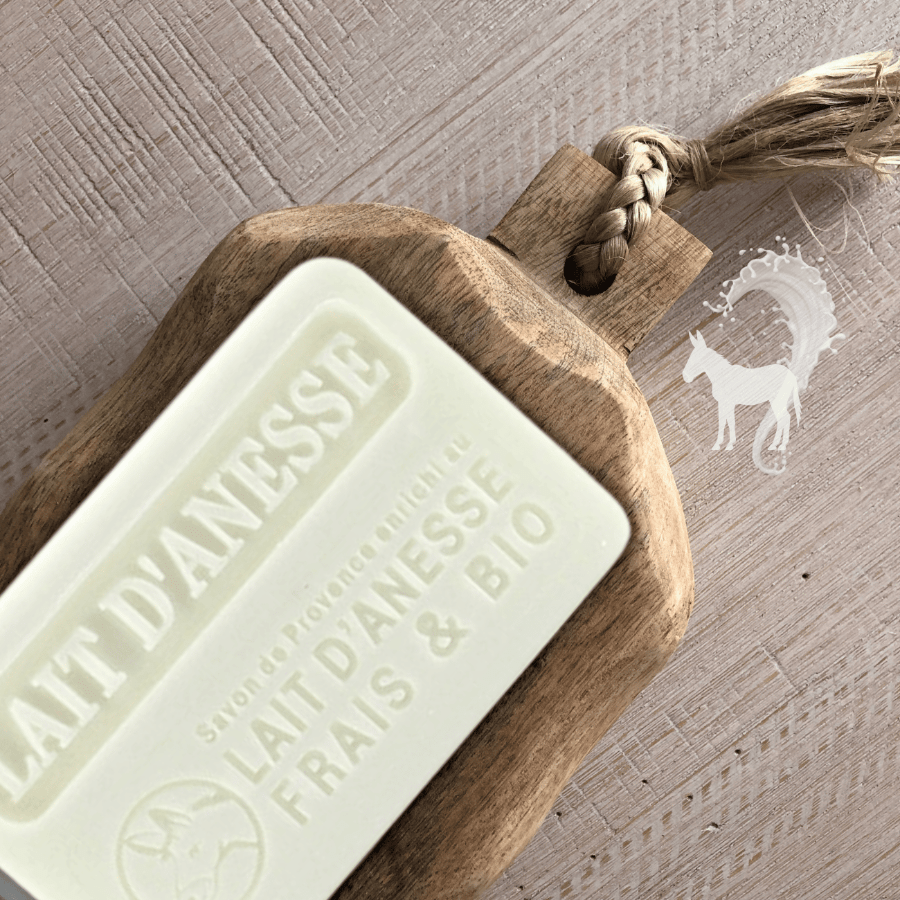Savon de Marseille Lait d'anesse (Donkey Milk) 100g
Savon de Marseille Lait d'anesse (Donkey Milk) 100g
Couldn't load pickup availability
Savon de Marseille Lait d'Anesse - Donkey's Milk Soap
Experience the luxurious touch of our Savon de Marseille Lait d'Anesse, enriched with shea butter for skin that feels like velvet. Crafted using a traditional French recipe, this natural, vegetable-based soap is proudly made in Provence, France, ensuring high quality without any animal fats.
Nourishing and Hydrating: This exceptional soap features the unique benefits of donkey's milk, renowned for its hydrating, skin-tightening, and anti-aging properties. It is carefully formulated to regenerate and nourish your skin, helping to delay the aging process while soothing conditions like eczema and psoriasis.
Gentle and Pure: Free from parabens and SLS, this Marseille soap is recommended by dermatologists worldwide for its incredible purity and moisturizing capabilities, making it ideal for sensitive skin. Its gentle formula is trusted across generations for everything from washing linens to cleansing delicate faces.
Eco-Friendly Choice: Savon de Marseille is completely biodegradable and requires minimal packaging, aligning with environmentally friendly practices.
Indication: Perfect for dry or problematic skin; suitable for face and body wash, bath, and shower.
Direction for use: Wet the bar and lather between hands or directly on the skin. Massage gently into the skin, then rinse thoroughly with water.
Ingredients: sodium palmate, sodium palm kernelate, aqua (water), donkey milk, parfum (fragrance), butyrospermum parkii (organic shea butter), glycerin, sodium chloride, tetrasodium EDTA, tetrasodium etidronate, benzyl alcohol, citronellol, coumarin, hydroxyisohexyl 3-cyclohexene carboxaldehyde, alpha-isomethyl-ionone, linalool, butylphenyl methylpropional











